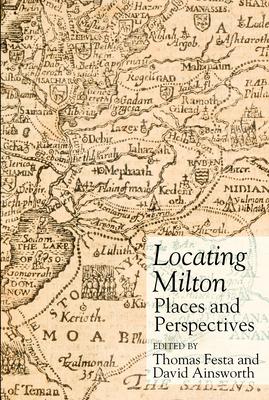Locating Milton: Places and Perspectives collects nine previously unpublished essays that examine Milton's works as the product of his unique intellectual experiences at home and abroad, while also tracing the ways in which those works themselves express the influence of his travel, his reading, and his political engagement. Following an interpretive introduction that seeks to locate Milton through his last surviving letter, the first group of essays examine how young Milton locates himself through his travels in Italy, how Milton's early reading leads him to situate himself intellectually, and how the intellectual framework Milton generated remains pertinent to students and communities today. The second group calculates the impact of early modern mathematical and scientific models on Milton's cosmology, demonstrating how Milton's complex negotiations of such models give form and perspective to his greatest poetic works. The final group of essays locates Milton distinctly through his works' global reception, ranging from the anonymous English poem Praeexistence, to Milton's place in the "new world" and science fiction, to his presence as a figure inspiring political resistance in communist Hungary.

Locating Milton: Places and Perspectives
Locating Milton: Places and Perspectives collects nine previously unpublished essays that examine Milton's works as the product of his unique intellectual experiences at home and abroad, while also tracing the ways in which those works themselves express the influence of his travel, his reading, and his political engagement. Following an interpretive introduction that seeks to locate Milton through his last surviving letter, the first group of essays examine how young Milton locates himself through his travels in Italy, how Milton's early reading leads him to situate himself intellectually, and how the intellectual framework Milton generated remains pertinent to students and communities today. The second group calculates the impact of early modern mathematical and scientific models on Milton's cosmology, demonstrating how Milton's complex negotiations of such models give form and perspective to his greatest poetic works. The final group of essays locates Milton distinctly through his works' global reception, ranging from the anonymous English poem Praeexistence, to Milton's place in the "new world" and science fiction, to his presence as a figure inspiring political resistance in communist Hungary.